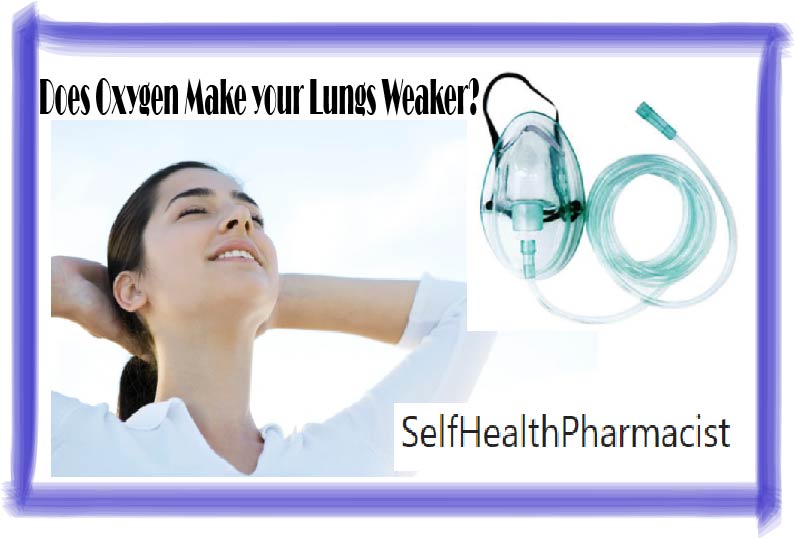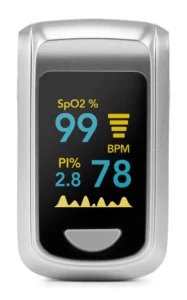The level of oxygen in the air of megacities is much lower than the norm, therefore, residents of large cities are constantly in conditions of oxygen starvation – hypoxia.
As a result, people experience a decrease in immunity, metabolic disorders, headaches, insomnia, depression, chronic fatigue syndrome develops, and efficiency decreases.
One of the modern devices designed to compensate for hypoxia, including at home, is an oxygen concentrator.
Oxygen therapy is the supply of highly concentrated oxygen to the patient.
Hypoxemia – is a decrease in the oxygen content in the blood due to various reasons, including circulatory disorders, increased tissue oxygen demand, a decrease in gas exchange in the lungs during their diseases, a decrease in the hemoglobin content in the blood, a decrease in the partial pressure of oxygen.
Do you know that pulse oximeter can help you in detecting a sleep apnea?Pay attention to the best pulse oximeter in the market:Oxiline Pulse X Pro is currently the best fingertip pulse oximeter on the market with the easiest adjustment to your smartphone.
It can measure your Saturation Measurements and Perfusion Index in several seconds with 99% accuracy!
It can be used by both professional specialists and ordinary users at home. The latch fits snugly to the finger and does not move out during operation.The gadget consumes a minimum of energy, so it does not require frequent replacement of batteries.
Table of Contents
What is Oxygen Therapy?
The use of oxygen for therapeutic or prophylactic purposes is called oxygen therapy.
Oxygen in the body is vital for the implementation of cellular respiration, the process of formation of energy-rich chemical compounds.
The physiological effect of oxygen therapy is most important in hypoxia, as it allows you to compensate for the lack of oxygen in the tissues.
When carrying out oxygen therapy for patients with respiratory failure, an increase in oxygen in the blood plasma, alveolar air is observed, shortness of breath decreases in patients, the amount of oxyhemoglobin in the blood increases, metabolic acidosis decreases by means of reducing the content of under oxidized products in tissues, catecholamines in the blood fall, which normalizes activity hearts.
For Whom is Oxygen?
Regular use of the oxygen therapy device is recommended for:
- People in the period of rehabilitation after surgery, severe illness to relieve the effects of stroke, myocardial infarction, pneumonia, COVID-19.
- When doing active sports.
- During pregnancy, a normal level of oxygenation significantly reduces the risk of developing fetal pathologies.
- Patients suffering from chronic lung diseases.
- Elderly people.
- Children who have a high incidence of ENT organs and the respiratory system.
- Smokers to reduce the toxic effects of tobacco.

What are the Long Term Effects of Being on Oxygen?
Long sessions of breathing with oxygen (2 minutes, no more than 3 times a day with an interval of several hours) have a positive effect on the entire body and can be used for preventive purposes without medical supervision.
The Long Term Effects of oxygen therapy:
- Stopped headaches;
- Mental activity improves: memory capacity increases, concentration of attention increases;
- Increased physical activity;
- The work of the cardiovascular and respiratory systems is normalized;
- Immunity is strengthened;
- Increased resistance to stress;
- Metabolic processes are stimulated;
- Toxins are neutralized;
- The tone of the body rises;
- The general condition improves.
How Long Should You Use Oxygen?
Patients with chronic hypoxemia must use oxygen constantly, for a long time.
Oxygen can be used even at home. From a medical point of view, it is effective, absolutely safe and cost-effective.
Three main methods are used to obtain and store oxygen at home:
- Cylinders for compressed gas
- Oxygen concentrators
- Cryocontainers for storing liquid oxygen…
What are the Long Term Effects of Being on Oxygen?
Long sessions of breathing with oxygen (2 minutes, no more than 3 times a day with an interval of several hours) have a positive effect on the entire body and can be used for preventive purposes without medical supervision.
The Long Term Effects of oxygen therapy:
- Stopped headaches;
- Mental activity improves: memory capacity increases, concentration of attention increases;
- Increased physical activity;
- The work of the cardiovascular and respiratory systems is normalized;
- Immunity is strengthened;
- Increased resistance to stress;
- Metabolic processes are stimulated;
- Toxins are neutralized;
- The tone of the body rises;
- The general condition improves.
What are the Side Effects of Being on Oxygen For Too Long?
With an excess of oxygen, normal biological oxidation chains are disrupted, the interruption of which leaves an excess amount of free radicals that cause irritation to the tissue.
Hyperoxia in the respiratory tract disrupts the drainage function of the bronchi, increases the resistance of the gas flow, causes inflammation and irritation and inflammation of the mucous membranes and damages the ciliated epithelium.
In the lungs, the destruction of the surfactant occurs, the tension of the surface of the alveoli increases, pneumonitis, micro- and after and macro-atelectasis occur, the vital capacity decreases, the diffuse capacity of the lungs decreases, and the uneven distribution of blood flow and ventilation increases.
The main manifestations of oxygen intoxication are: lesions in the respiratory organs and in the central nervous system.
This is determined by dry mouth, dry cough, chest pain.
Later, spasms of peripheral vessels may occur.
Convulsive syndrome and violation of thermoregulation may indicate a hyperoxic lesion of the central nervous system, the occurrence of mental disorders and the development of a coma are possible.
The Myths about Oxygen Therapy
The lack of information about the possibilities of modern innovations often causes mistrust among people, which leads to the emergence of many myths and misconceptions around new technologies.
The First Myth: Long-term oxygen therapy is addictive
There is an opinion that long-term inhalation of oxygen concentrate causes addiction in the patient, similar to narcotic, and if a person is deprived of the opportunity to constantly breathe oxygen, he will develop signs of respiratory failure.
In fact, according to doctors, inhaling oxygen concentrate is not addictive.
The main thing in oxygen therapy, as in any treatment, is to follow the recommended dosages, which are selected by the doctor individually, depending on the clinic of the disease and the level of saturation – blood oxygen saturation.
The Second Myth: The device is dangerous to use at home
The fire safety and explosion safety of the devices is confirmed by the Registration Certificate of the Ministry of Health and Social Development of USA and the certificate of conformity.
The technology for producing oxygen was developed by NASA specialists to ensure the breathing of people in spacecraft.
When using any technical device, you must adhere to the rules of operation.
Strict adherence to the instructions when using an oxygen concentrator at home is a guarantee of a long and safe operation of the device.
The Third Myth: Oxygen concentrator – an analogue of an oxygen cushion
It is incorrect to compare an oxygen concentrator and an oxygen bag. These are completely different devices that differ both in production technology and in the principle of operation.
Pillows are small, volume, operate for a short time and require constant refueling.
In the recent past, oxygen bags have been used to help patients with respiratory and cardiovascular insufficiency.
With the invention of more technically advanced devices for oxygenation (oxygen concentrators, balloons), pillows are rarely used.
An oxygen cushion is simply a container into which an air mixture with a high concentration of oxygen has been pumped.
And the concentrator itself generates oxygen and is designed for long-term operation without refueling.
The Fourth Myth : Oxygen in high concentration has a toxic effect on the body
The conducted research showed that when an oxygen mixture is inhaled, it is diluted with atmospheric air, so the oxygen concentration in the bronchus does not exceed 35-40%.
In addition, in devices designed for home use, the oxygen flow rate is only 1 to 3 liters per minute.
Negative side effects from an oxygen concentrator can manifest themselves in the form of over drying of the mucous membranes of the respiratory tract if the air humidification function is not connected to the device.
Oxygenation should not be performed if the level of oxygen in the blood is at the upper limit of normal, since an excess of O2 can lead to vasoconstriction and worsen the general condition of the patient.
Scientific research and experience in the use of oxygen concentrators in clinical practice have proven high efficiency, safety, convenience and ease of use of the devices both in the treatment of patients and prophylactically in healthy people.
An oxygen concentrator is a modern individual solution to the problem of lack of oxygen in urban conditions and with appropriate medical indications.
FAQ
Does Using Oxygen Make Your Lungs Weaker?
Oxygen makes your lungs stronger. Oxygen is a medicine, and it must be used strictly for its intended purpose. As with any drug, overdose can be dangerous.
Does Oxygen Strengthen Your Lungs?
Oxygen is not addictive. Oxygen therapy is necessary only in cases where the lungs themselves cannot provide the body’s needs for oxygen. As soon as the lungs begin to cope with their function, oxygen therapy is stopped, it means that the lungs are strong enough.
Does Shortness of Breath is a Sign of a Lack of Oxygen?
Shortness of breath is not always accompanied by a lack of oxygen.
There are many other reasons for shortness of breath.
With a large expenditure of energy for the production of the act of breathing, which is observed in most patients with chronic pulmonary diseases, shortness of breath may occur even with a normal level of oxygen in the blood.
Only based on the results of determining the concentration of oxygen in the blood, the doctor can prescribe oxygen therapy.
Can People Be Active When They Use Oxygen?
People using oxygen can lead an active lifestyle.
Now portable oxygen supply systems are available, using which, you can not change your lifestyle.
